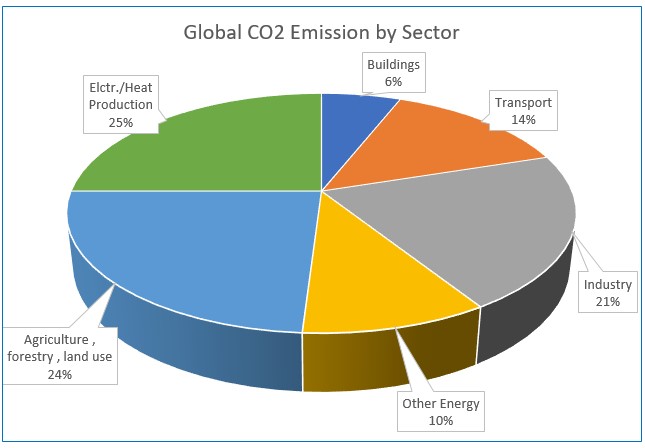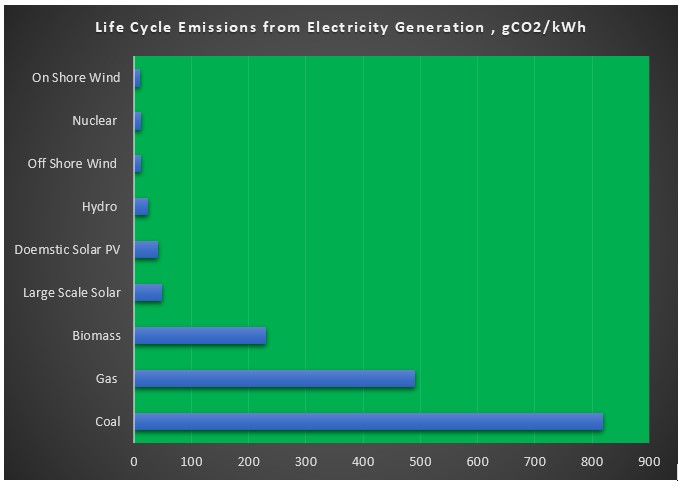Decarbonization needs to be Everybody’s priority
The key objective of Decarbonization in any process is to have Zero CO2 emission which should be the target to halt Climate Change. In order to understand better, let’s define it from the point of view of power generation. It means reducing the carbon emissions per unit of electricity generation (e.g. gCO2/kWh). In addition, decarbonization can be defined as the process of reducing GHG gas (greenhouse gas) emissions which occur as a result of activities such as transport (due to fuels used in transportation services), production of electricity, emissions coming from manufacturing plants, etc.
The below chart gives an idea about the global CO2 emission by different sectors.

So , this is not only the responsibility of a particular sector but everybody should do their part in this process of decarbonization. And, the below benefits can be expected: –
- The cost of energy production will be less; similarly, the industry output production cost
- Less GHG emissions to the environment mean less air pollution and reduced global warming effects
- Reduced carbon levels will mean fewer effects of carbon emission impacts like acid rain, polluted water air, and soil
The below graph indicates what could be the most preferred from of electricity generation.

There are other possible ways also to decarbonize the fossil fuel based power generation like Carbon Capture and Storage (CCS) technology, Biomass based power generation together with CCS, etc.
The urgency of decarbonizing the power sector is from the point of view of the possibilities of electrifying the Transport sector (e-mobility) and thereby decarbonizing this highly CO2 emission contributing sector. E-mobility is the best and most efficient way to reduce the carbon emission of the sector.
Industrial sector is the engine of the growth. It emits 28% of the global Green House Gas Emissions (GHG) of which 90% is the CO2 emissions. Some of the possible means to decarbonize the sector are :-
- Energy Efficiency routes to reduce the fuel consumption by 15-20%. The possibilities are known through systematic Energy Audit studies
- Using maximum possible Solar PV for power generation to offset the grid power cost and Solar Thermal for hot water generation to offset the fossil fuel usages.
- Using bioenergy as much as possible as fuel or in process and
- Industry awareness about the available technologies and solutions to reduce energy consumption and increase profit
The most positive aspect about the industrial decarbonization is that the big industries (Energy Intensive industries) have sustainability strategy which incorporates decarbonization as the key aspect to reduce their carbon footprint. Also, the awareness about this and thereby participation of everybody in this process will eventually take us to the low carbon/ low carbon footprint/zero carbon world.
References:
- Decarbonization of the industrial sectors: the next Frontier by McKinsey & Company
- https://greencoast.org/



